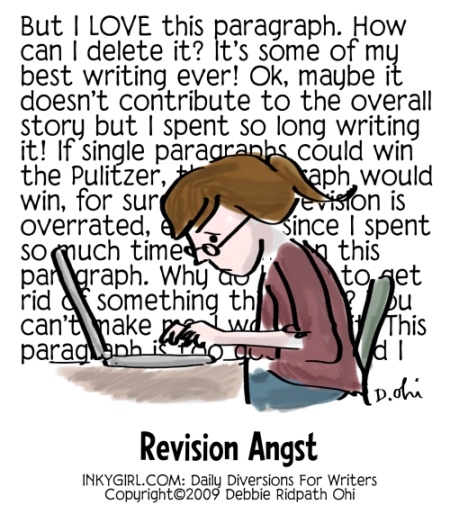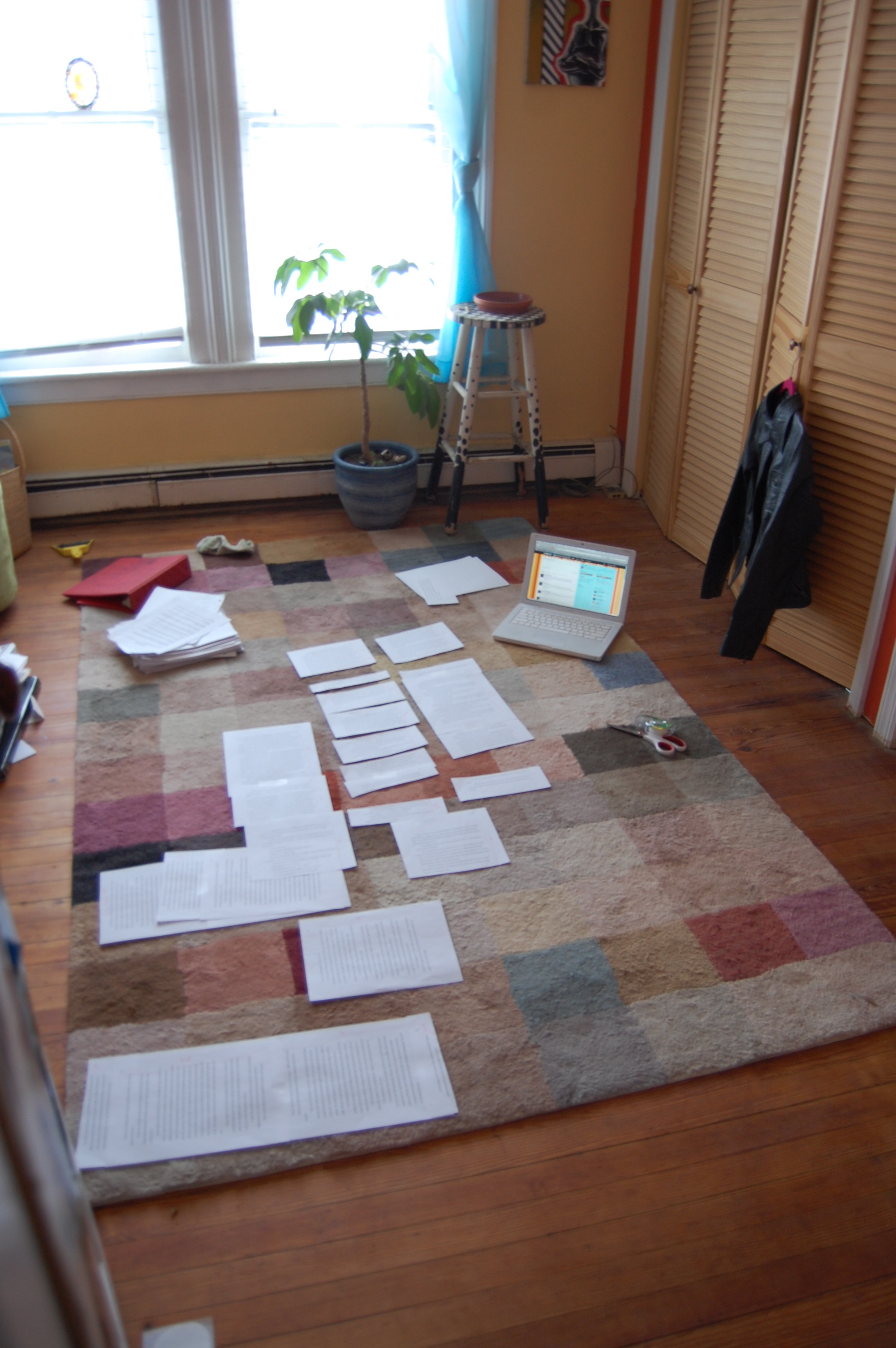Right now I’ve got a knot in my stomach because the manuscript for my novel is out to one of my writers’ groups. I gave it to them last month, and recently, two of the writers emailed to admit that they hadn’t yet read it. And I replied with something like: “Aw shucks, that’s fine, take your time.” But what I meant was: “I’m sort of hoping that all three of you have lost your copies to three separate freak manuscript flash fires, which will mean that we can’t have our meeting to discuss my work next month.”
I dread making revisions to this novel. I don’t know why. No, I do know why. I just hate to admit it, because it seems silly when I say it aloud blog about it. I dread revisions because I worked hard on this novel all last year and although I know it is still lacking, I’m afraid to ruin what’s already been written by meddling with it.
This has always been my fear about revisions; that I’ll work on something so much that I will destroy it.
I was introduced to this concept young; my father is a visual artist and he often gave classes to the kids in our community, both privately and through the local parks and recreation department. My brother and I ended up in a lot of these classes, partially to teach us art, but mostly to give my mom a morning off from us.
My dad used to tell his students that one of the biggest challenges in art is not the art itself, but knowing when a piece is done. You might create a lovely line drawing and ruin it with too much shading. You might get so into a painting that you mar it by concentrating too much on the details. When you’re painting or drawing, each stroke is potentially fatal.*
Recently, I realized that I’ve been applying this visual art lesson to my writing. I’m afraid that I will overwrite, or over-edit my novel and ruin it. In fact, I’m always under-writing things for just this reason.
I know that this isn’t logical – working in Microsoft Word is not the same as working in charcoal. Still, I fear tampering with something so much that it’s no longer as good as the original idea.
Also, the idea of revising something as large as a novel scares me. How can I stand back and look at the shape of a story that’s nearly 300 pages long?
If you have any answers for that, let me know. Because as soon as my readers get back to me, I’ll have no choice. It will be time to revise.
*My father never said that exactly. I doubt a class of seven year-olds would have responded well to “each stroke is potentially fatal.”



